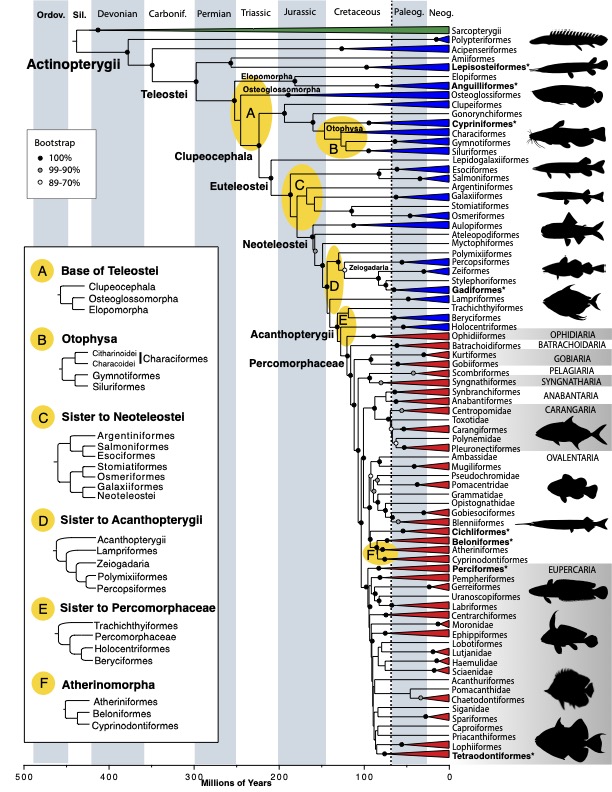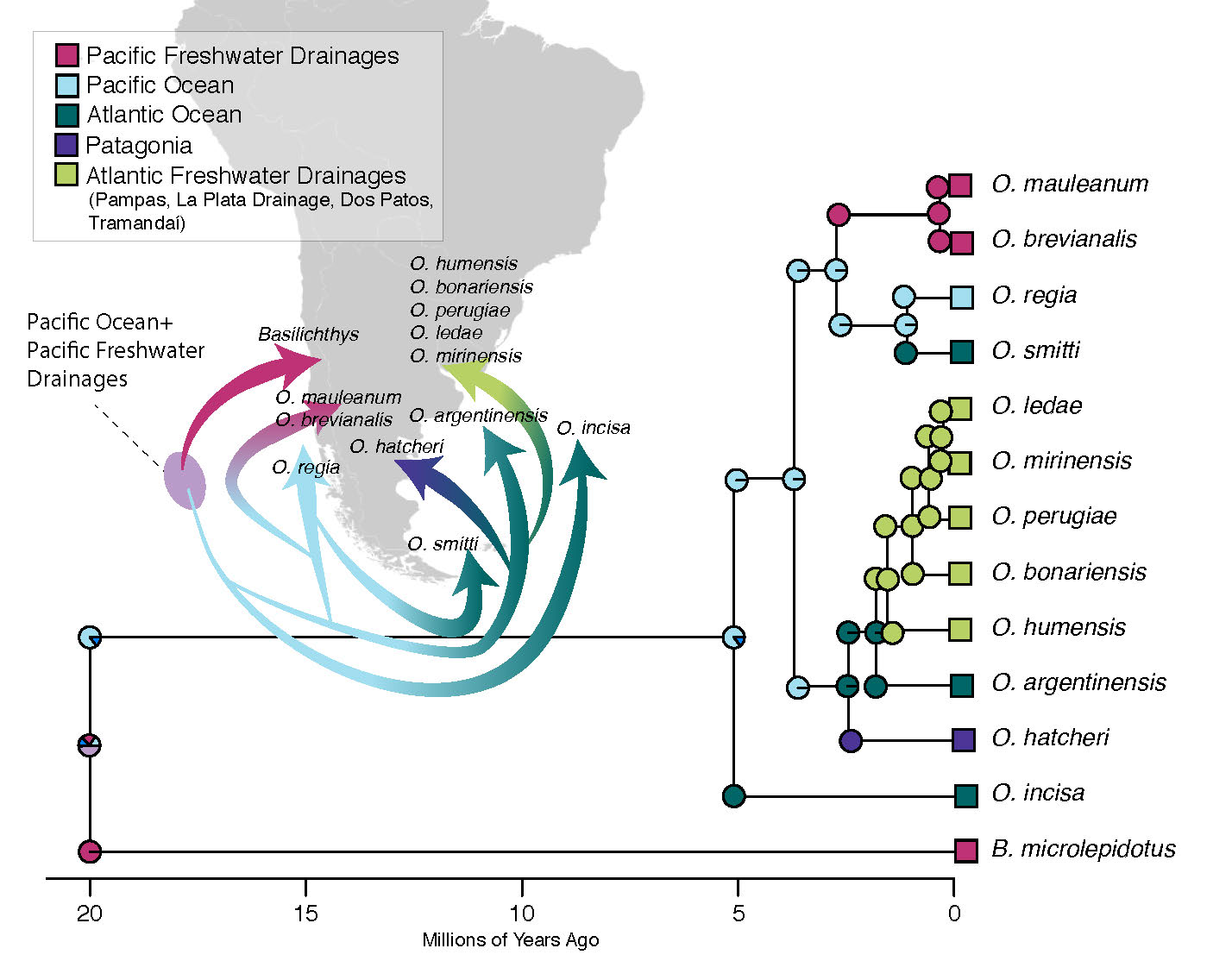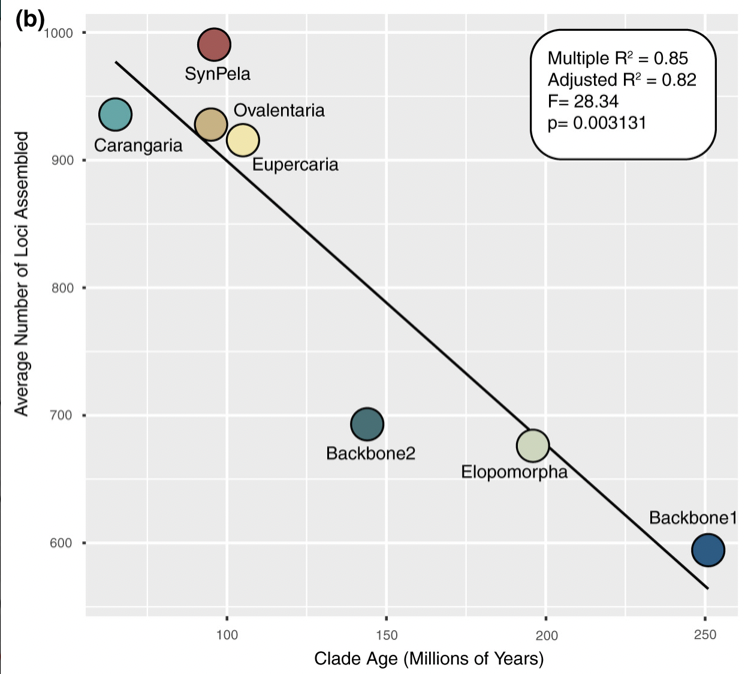Research
Research in the Ichthyology Lab primarily uses genomic approaches to study the evolution and biodiversity of ray-finned fishes, the largest group of living vertebrates with more than 36,000 species. Some specific research topics include:
Phylogenomics
How do we infer the tree of life with genome-scale data? Large phylogenomic studies are now commonplace for many organisms, but understanding the best way to analyze and interpret these datasets is highly complex.
Biogeography & Phylogeography
Why are species or genetic lineages distributed where they are today? Phylogenomic datasets are highly useful for understanding the patterns and processes responsible for historical species distributions (historical biogeography), as well as more recent processes of speciation, range expansion and contraction, and hybridization (phylogeography).
Adaptation Genomics
What genes are responsible for the amazing array of adaptations we see in fishes today? Comparing genomes and transcriptomes of closely related species can shed light on the genomic regions that generate this biodiversity.
Monitoring Fish Communities
Our newest project uses environmental DNA (eDNA) to examine the health of local fish communities right here in North Carolina!
… and more.


